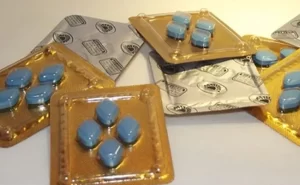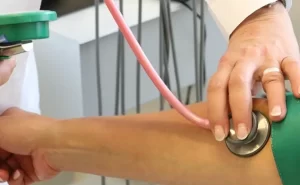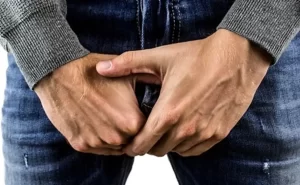Low Testosterone Linked to Hair Loss
Low energy is one of the symptoms seen when testosterone levels are deficient. Low testosterone levels can impair concentration because this hormone is necessary for normal brain function. In addition, low testosterone is associated with increased depression and irritability in men. This may bring some feelings of helplessness, loss, and anger.
Men often have difficulty maintaining enough testosterone levels. Women, however, may also be vulnerable to this condition. The signs and symptoms are interchangeable. The male hormone testosterone is produced collaboratively between the adrenal glands, the ovaries, and the fatty tissue. Men’s testosterone levels naturally diminish during their mid-20s and continue to fall with increasing age. Hair loss is just one of the possible side effects of this.
Testosterone production is critical for male reproductive tissue because it helps to keep the body’s natural hormone levels in check. Lack of testosterone, or hypogonadism, can lead to thinning hair, baldness, and hair loss. In addition to slowing overall health, these conditions might affect hair growth. A person’s experience of the symptoms may be unique from that of another.
Thankfully, medications can reverse the symptoms of low testosterone levels. Testosterone replacement therapy is one such option; it blocks the body’s natural production of DHT by reducing free testosterone.
Gradual Hair Loss
And while free testosterone helps hair grow naturally and healthily, the treatment may also cause a rise in that hormone. As a result, one of the symptoms of this disease in men is gradual hair loss; this medicine will help men manage this condition. Androgenic alopecia is characterized by scalp hair loss and is a common sign of hormonal imbalance.
Hair transplant surgery is an additional treatment alternative for men with low testosterone levels. Hair follicles are surgically extracted from the scalp donor area, which is often the back or side of the head. After the transplant, the follicles are relocated. It’s likely that biotin, a vitamin B, will be used in these transplants. This vitamin assists the body in the process of converting food into energy, which is essential for the growth of hair.
When testosterone levels are normal, people often feel happier and have more drive. Per health recommendations, the daily intake of saturated fats should be limited to 20 grams. Saturated fat is bad for you, although some healthy sources include eggs, poultry, paneer, and coconut.
Increasing your testosterone levels requires both the importance and the necessity of physical activity. The best form of exercise for this is weight lifting, generally three or four times a week. An intense workout will deliver a more significant amount of testosterone.
Low Testosterone Levels
Low testosterone levels can also be treated with a supplement to increase hormone levels. Pills containing testosterone have increased testosterone levels and stimulated hair growth. There must be no hidden components or proprietary blends in the dietary supplements.
Some occurrences of hair loss have also been associated with extreme stress. The hair follicles may go into the telogen phase due to the high stress, which might result in hair loss. Hair loss may occur during routine activities like shampooing, and the disorder may evolve into trichotillomania. Thinning hair due to stress is transitory, and expected growth may resume upon removing the stressor.













